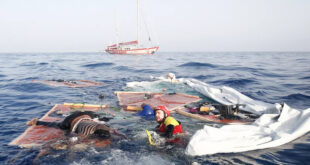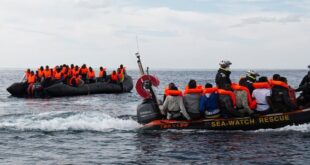Germany is not obliged to automatically recognise persons seeking protection as refugees because they already have been granted refugee status in another EU country. The European Court of Justice (ECJ) ruled in Luxembourg on Tuesday that the states of the European Union are not obliged to take such action.
Background to the case: A Syrian national who obtained refugee status in Greece subsequently applied for international protection in Germany. A German court held that, on account of the living conditions for refugees in Greece, she ran a serious risk of suffering inhuman or degrading treatment, with the result that she could not return to Greece. Germany rejected her application for refugee status, but granted her subsidiary protection, which is less extensive than refugee status.
She then brought an action against the refusal of refugee status before the German courts. The case focuses on the issue that arises where the conditions in the Member State originally granting refugee status are such that a person concerned cannot be returned there. What are the obligations of another Member State in which that person files a subsequent request for international protection? Should the second Member State process it and in what manner?
The German Federal Administrative Court requested the ECJ for a preliminary ruling on those questions.
No, the European judges have now ruled: EU states do not automatically have to adopt the decisions of another country because EU law does not provide for the principle of mutual recognition with regard to positive decisions granting refugee status. The ECJ says the concept of a single responsible Member State under the Dublin III Regulation 2* does not entail a requirement to recognise, without a substantive examination, the international protection that another Member State has already granted.
However, the ECJ said that the authorities of the second Member State (Germany) examining the subsequent application cannot simply disregard the fact that another Member State (Greece) has already granted refugee status. Indeed, this fact may constitute one of the elements substantiating the facts relied upon in support of the subsequent application, the court ruled.
The Federal Administrative Court in Germany will now deliver judgement on the specific case in the coming months. However, it is bound by the ruling of the ECJ.
Felix Dappah
________
The Dublin process
The European Union plus Switzerland, Iceland, Liechtenstein and Norway are the so-called Dublin-Countries. These countries have agreed that the first country to register a refugee has to carry out the asylum process for that person. The countries call this rule the Dublin III directive. A person seeking protection is therefore not free to choose the country in which they want to have their asylum process carried out.
 THE AFRICAN COURIER. Reporting Africa and its Diaspora! The African Courier is an international magazine published in Germany to report on Africa and the Diaspora African experience. The first issue of the bimonthly magazine appeared on the newsstands on 15 February 1998. The African Courier is a communication forum for European-African political, economic and cultural exchanges, and a voice for Africa in Europe.
THE AFRICAN COURIER. Reporting Africa and its Diaspora! The African Courier is an international magazine published in Germany to report on Africa and the Diaspora African experience. The first issue of the bimonthly magazine appeared on the newsstands on 15 February 1998. The African Courier is a communication forum for European-African political, economic and cultural exchanges, and a voice for Africa in Europe.

































